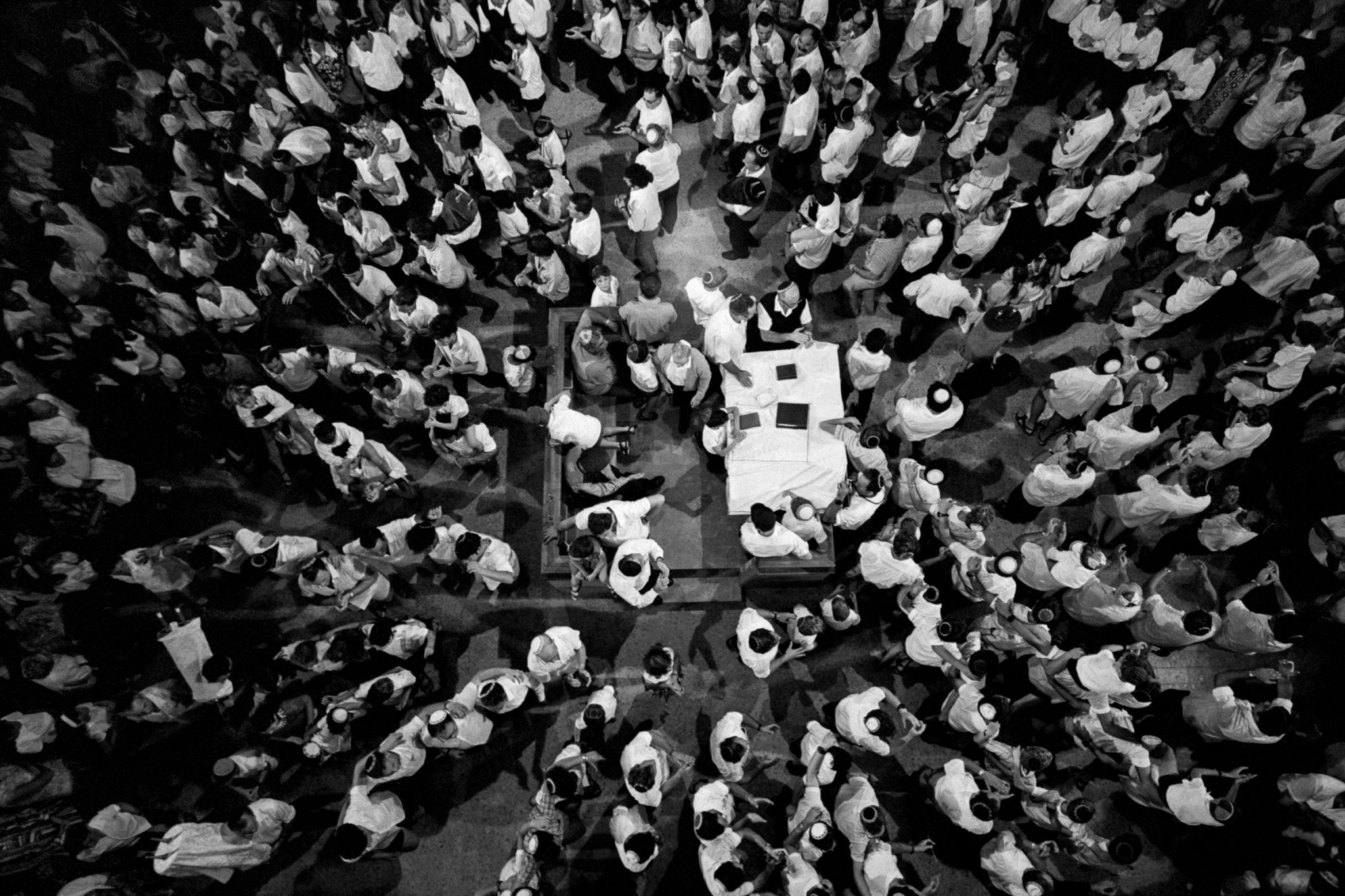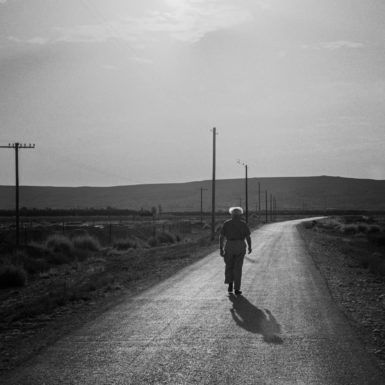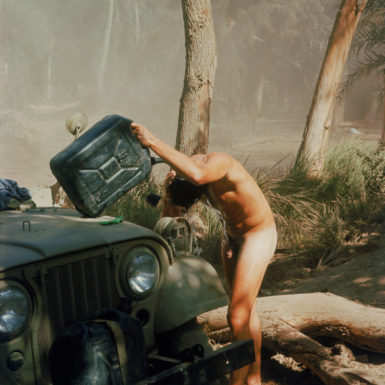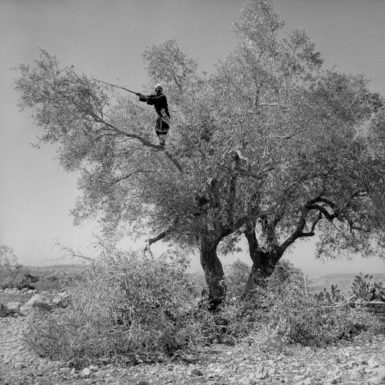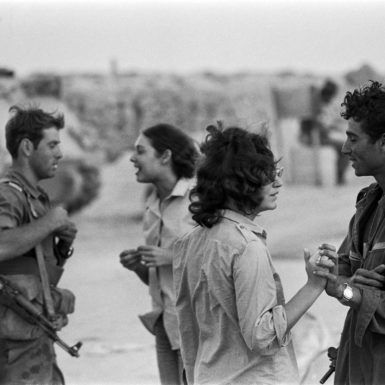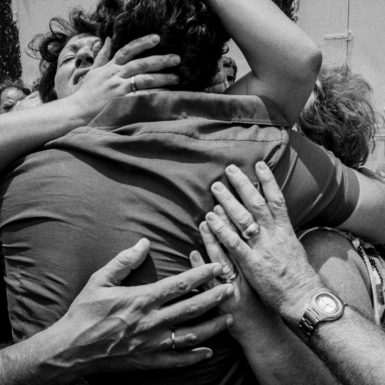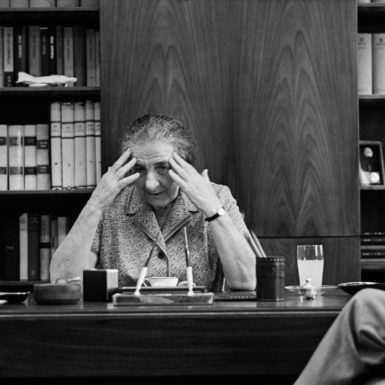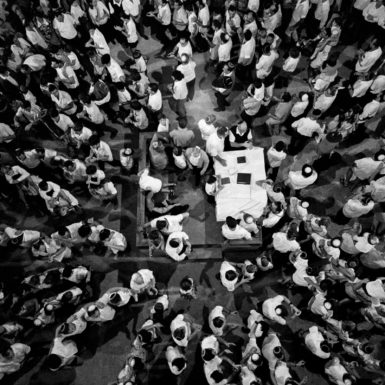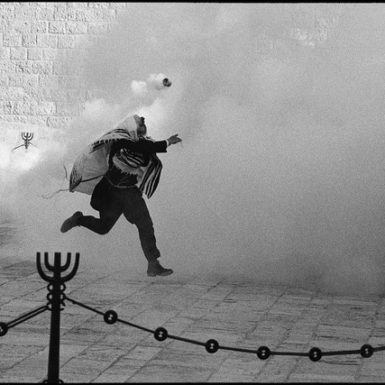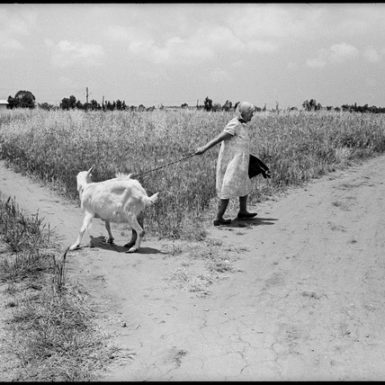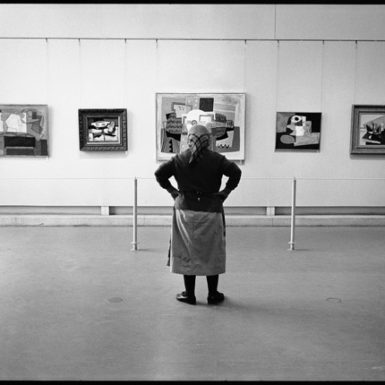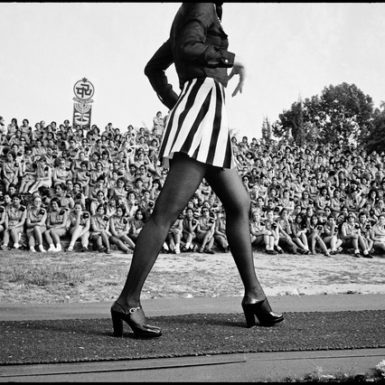Gallery
BIOGRAPHY
Micha Bar-Am was born in Berlin in 1930 and moved with his family to Israel (then Palestine) in 1936. Active in the pre-state underground, he worked at Haifa Port and was drafted in 1948 when the Jewish-Arab Conflict turned into an all-out war.
In 1949 he co-founded the Kibbutz Malkiya in the Galilee. Soon after, Bar-Am moved to Kibbutz Gesher-Haziv. In the early 1950s, using borrowed cameras, Bar-Am began to record life on the kibbutz and joined archeological expeditions in the Judean Desert in search of ancient Dead Sea scrolls.
After the 1956 Sinai Campaign, Bar-Am published his first book, Across Sinai and was offered to join the editorial staff of Bamachane as photographer and writer. In 1961 he was assigned the Eichmann Trial. In 1966 Bar-Am began as a free-lancer and met with Cornell Capa with whom he would cover the 1967 Six Day War.
In 1968 Bar-Am was invited to join Magnum and he became the Contracted Middle East photographic correspondent for the New York Times until 1992.
During the 1973 Yom Kippur War, Bar-Am covered the conflict from Suez to the Golan Heights. In 1974 Bar-Am was a founding member of the ICP in New York and became active as photographic curator. In 1977 he established the department of Photography at the Tel Aviv Museum of Art which he headed until 1992. In 1982 he covered the war in Lebanon, which resulted in an exhibition and book.
Bar-Am is married to Orna, an artist. Their sons are Ahuvia, a professor of classics; Barak, an artist; and Nimrod, a doctor of philosophy.
AWARDS | Recognitions
2000 The Israel Prize for Visual Arts “for his lifelong recording of the social and cultural scene in Israel and its ongoing conflicts with a critical eye and an indelible style.”
1993 Enrique Kavlin Prize, Israel Museum
1985-86 Nieman Fellow, Harvard University, Cambridge, MA
1985 Fulbright Grant
1985 Golden Flamingo for Photographic Poster, Arles, France
1985 IBM Fellowship, Aspen, Colorado
1959 Capa-Chim award, First Prize, Tel Aviv
SELECTED SOLO EXHIBITIONS
2000 Micha Bar-Am : FotografieStadthaus Ulm, Germany
1998 Israel: Die ersten 50 Jahre, Eine Fotobiographie, Berlin, Hamburg, Halle, Dresden
1998 Israel: A Photobiography, International Center of Photography (ICP), New York; Los Angeles, Houston, Memphis, Oklahoma City
1996 The Last War, Tel Aviv Museum of Art
1992 Patterns of Jewish Life, Martin-Gropius-Bau, Berlin
1990 Israel: The Stormy Years, Barbican Center, London
1985 Micha Bar-Am, International Museum of Photography at George Eastman House, Rochester, NY
1982 Israel Diary 1956–1982, International Center of Photography (ICP), New York
1981 1981 Micha Bar-Am, G. Ray Hawkins Gallery, Los Angeles
1979 Jews in Egypt, Diaspora Museum, Tel Aviv
1975 Micha Bar-Am: Photographs, Israel Museum, Jerusalem
public Collections
Israel Museum, Jerusalem
Tel Aviv Museum of Art
Haifa Museum
Diaspora Museum, Tel Aviv
The Museum of Photography at Tel Hai
International Center of Photography (ICP), New York
Museum of Modern Art, New York
Museum of Fine Arts, Houston
International Museum of Photography at George Eastman House, Rochester, NY
Skirball Museum, Los Angeles
Minneapolis Institute of Arts
Henry Buhl Collection, New York
Ludwig Museum, Köln
Folkwang Museum, Essen
Bibliothèque Nationale, Paris
Musée d’Art et d’Histoire du Judaisme, Paris
Collection Fnac, Paris
Fundacion “Le Caixa,” Barcelona
National Maritime Museum, London
PHOTOGRAPHER’S NOTE
I’ve been photographing for nearly fifty years now, mostly in Israel, and often on assignment. The initiative for a story may be mine or an editor’s, but it is usually prompted by events in the news or at the center of public debate. Within this professional framework, which offers me a platform and a pretext for being involved, I range widely. I keep my internal eye open for that other, metaphorical image that transcends illustration to achieve a wholeness of its own. I strive for the elusive entity that is both evidence and evocation, public record and personal vision.
I have adopted Robert Capa’s saying: “If your photographs aren’t good enough, you weren’t close enough.” But in retrospect I add a corollary: If you’re too close, you lose perspective. It is not easy to be fair with the facts and keep your own convictions out of the picture. It is almost impossible to be both a participant in events and their observer, witness, interpreter. The effort brings great frustration, and equally great reward.

